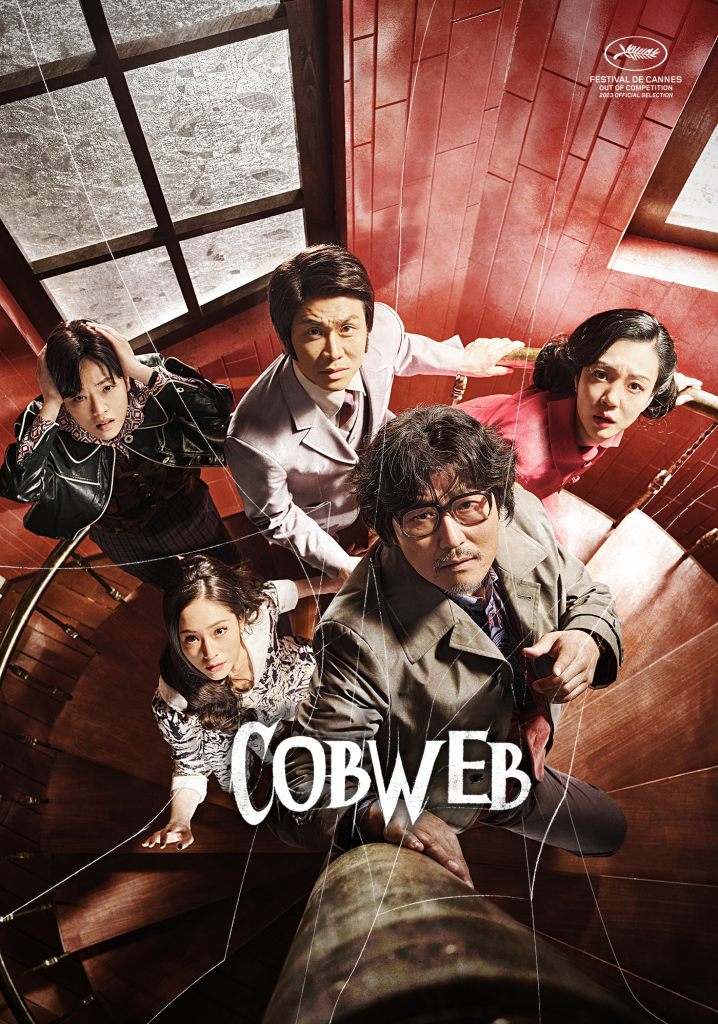Set in the 1970s, we follow a well-known film Director named Kim (Song Kang-ho), who is currently working on his new movie Cobweb. After having recurring dreams that are impossible to forget, Kim decides that a reshoot of Cobweb’s ending is a must to make the movie a masterpiece. Kim feels ignoring this vision for fear of criticism would be sinful. After preparing himself, Kim visits the film studio, advising management that he would like another two days to film a new ending for Cobweb. Everyone around Kim naturally reminds him that the film is complete and the end is perfect. Regardless, Kim won’t change his mind about his new vision.
However, Kim will soon find over the next two days that his desired reshoot will not be such an easy task. Firstly, Kim has to resubmit his work with censorship, but his updated script has been rejected with claims that it insults common decency. Still, when someone close to Kim reads the new ending, they are significantly impacted, encouraging Kim to reshoot it anyway, regardless of censorship approval. Kim will now film his new ending quickly and quietly under the radar regardless of anyone’s feedback. The question is, can Kim complete his masterpiece without any issues and before time runs out?


Cobweb is best described as a comedy with some combined moments of drama. Following a similar vibe to titles such as Birdman, Final Cut and Bowfinger, Cobweb reminds its viewers of the greatness of cinema magic. Here, Kim passionately desires to see his film play out his vision. However, it is no surprise that he encounters various issues and roadblocks, which only adds to the challenge. As viewers, you can’t help but question early on if Kim’s new ending is, in fact, a good idea or if perhaps the original ending he has already completed might be the right fit after all. Cobweb also introduces how challenging it must be for a Director to create a perfect ending to a film. Let’s be honest; we’ve all seen a fantastic movie ruined by a poorly executed finale and ending.

Song Kang-ho as Director Kim is outstanding. So much so that the excitement, engagement, and fun drop whenever the actor isn’t on-screen. His mannerisms, costumes and line deliveries are incredible. The narrations from Kim, such as “Criticism is an act of revenge by those who can’t make art”, also carry a powerful effect. I adored the film’s 1970s setting and the general feel of everything presented on-screen. When Kim is making his film, we see everything in full colour, but when we see the final product, it is in black and white, given the period. Cobweb’s runtime is a little too long for some viewers, which I can’t deny, but thankfully, by the third act, a remarkable conclusion occurs. After finishing watching, the film lingers strongly to the point that I am encouraged to rewatch the movie again soon.
Overall, this is a highly creative and clever film that will linger in the minds of audiences. I love the concept of a film director trying to complete his current movie as per his vision despite all the challenges that come in the process, not to mention the pressure from all directions. Cobweb is also funny, and some great moments of drama are present throughout, thanks to the leading performance from actor Song Kang-ho. Doing a wonderful job, Song Kang-ho heightens the film whenever he is on the screen. At the mid-way mark, the film does feel a little slow. Still, I can’t deny that by the third act, the entire journey felt significant, and many viewers will have a newfound appreciation for the stunning magic of cinema and filmmaking.
8.0/10
18th September 2023
Written by Peter Walkden



WALKDEN ENTERTAINMENT
PODCASTS ARE AVAILABLE!



0 Comments